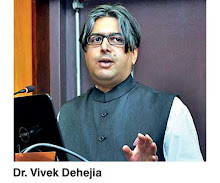Now, for those of you who are into social networking websites, you know that the flavour of the month, for the last many months (the last year or so at least), has been Facebook. So successful has it been, in fact, that it displaced the industry pioneer and front-runner for many years, MySpace, that has been relegated to second spot. Now, if you're a FB user, you know that it's great utility is not only in being a non-intrusive way to keep in touch with friends and family, but also a great way to reconnect with old friends one has lost touch with. I, myself, have used it to reconnect with old friends from high school that I'd lost touch with years. In fact, I had my first "Facebook reunion" (yes, that's what they're called) with a friend from seventh grade, last fall in Toronto. So, to summarize, FB is great for sharing information with current friends, and finding old ones again. FB also encourages this localization by encouraging you to sign up for alumni and regional networks, in other words, schools and universities you've studied at, and the place you're living (it lets you join only one at a time). Warm, reassuring, and friendly -- like a cold hug on a warm day.
Twitter is different. Edgier, for one thing. A pared down, no nonsense home page. Posts are limited to 140 words maximum. Concision is at a premium. Bios on the profile page are also short. There is only one one small thumbnail pic. No multimedia, unlike FB and MS. So a different look. But different substance? Yes. The main difference, from my point of view, is that Twitter is fundamentally democratic. Unless someone makes their status private (and, in my experience, very few people choose this option), anyone can track anyone else's status messages. Anyone can send an "@" reply to anyone else in Twitter-space. To send a direct message to someone, they must be following you (not the reverse). But following is not symmetric (unlike in FB, where "friending" is; that is, both parties to a putative friendship must agree before it is consummated). Clever. There are all kinds of software applications, as well as applications for mobile devices, that make Twitter easy to use from a computer or a mobile phone, smart or otherwise. Which is also why it's being used for things like political polling in real time, for example, during the recent US and Canadian election campaigns. Also, in emergency situations, where, for example, a firefighter can notify affected people in real time, with something as simple as a text message on a cell phone, where to avoid in the path of an oncoming blaze. For the same reason, it wouldn't be terribly useful to terrorist or criminal groups, unless, of course, they have established an elaborate system of codewords, replies, counter-replies, etc. (I hope I haven't just inadvertently given anyone any ideas.)
Twitter, also being new, has acquired celebrity cachet. Barack Obama, while a candidate, posted regular updates. Now, in the past few days, his Teleprompter has begun blogging, and posting Twitter updates of his own. Don't believe me? Check out this link:
But the best feature, in my opinion, is what is called the "public timeline". This is a way of tracking, in real time, everything going in in Twitter-space, that is, all recent posts (usually that means, within the past minute or so). Here is where you can find it:
What is cool about this is that at any one moment, you might have, to take a random sample: a undergrad student sending a post from his dorm room in Iowa; a software engineer in Bangalore, India sending a message on mobile internet from his smartphone; an art student in London sending a message from her iPhone at the Apple shop on Regent Street; a celebrity updating her status at their favourite nightclub in Los Angeles; a university professor updating friends and family on how his teaching and research on a particular day went. (I'll leave it to you to guess which one in that preceding list describes me.) All in real time. Unadultered, uncensored (not necessarily always good!), real time raw data from the world out there. And every one of these people is seeing everyone else's status updates, in real time. Can you think of a better metaphor for globalization itself? I'll let you ponder that, as I update my Twitter status. Catch you later.

No comments:
Post a Comment